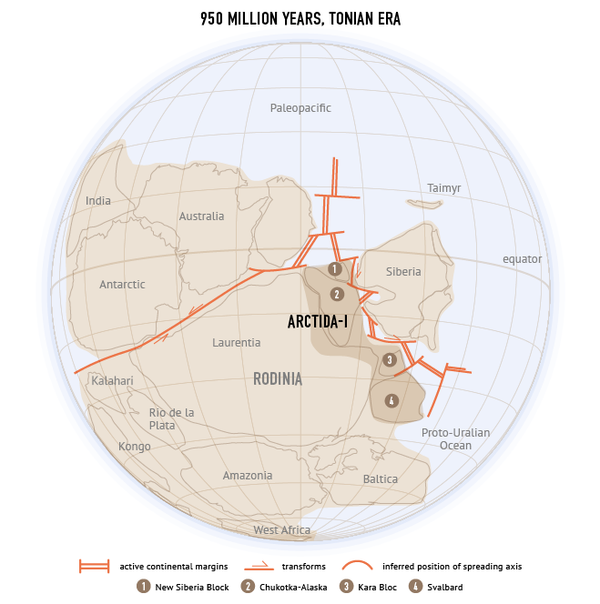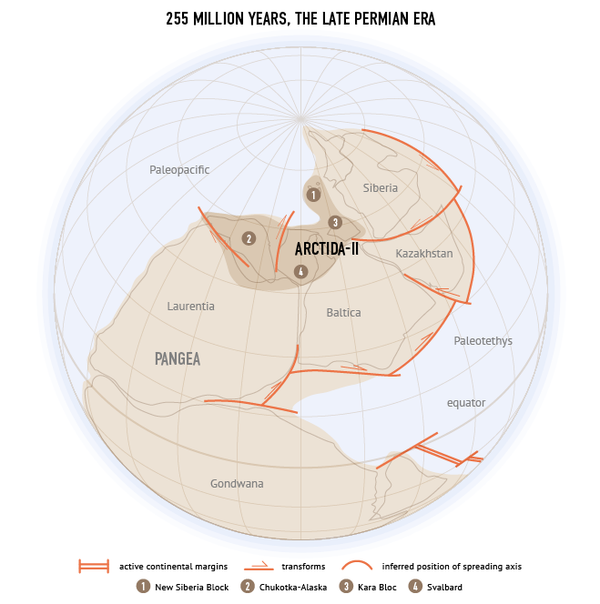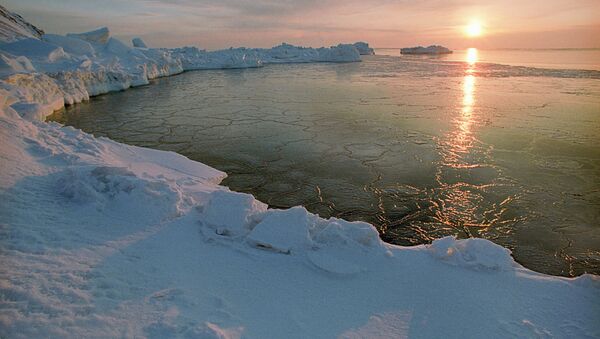Amusingly, Arctida was formed, but then disintegrated around 750 million years ago. But after 500 million years the continent came together again, scientists from Russia's Novosibirsk State University (NSU) have discovered.
"In geological history the fragments of the modern Arctic shelf once comprised a single entity, forming a continent that broke up and formed the structure of the modern Arctic… Our work was to restore the structure of the Arctic paleo-continent, the history of its development and decay, and the kinematics of the continental drift," said Nikolai Matushkin, the Dean of the Institute of Petroleum Geology and Geophysics of the Russian Academy of Sciences at NSU, as cited by a university press-release.

The Russian scientists summarized paleo-magnetic data that had been collected for over 20 years of Arctic explorations. Then, using a method known as paleo-magnetic analysis, the researchers were able to study the position of the Earth's crust and how it moved in the past.

This means that the modern Arctic is the third version of the continent.
Currently, the Arctic has become a coveted prize for its surrounding nations, including Russia, Canada, the United States, Denmark (Greenland) and Norway. The Arctic shelf is believed to have enormous deposits of oil and natural gas.



